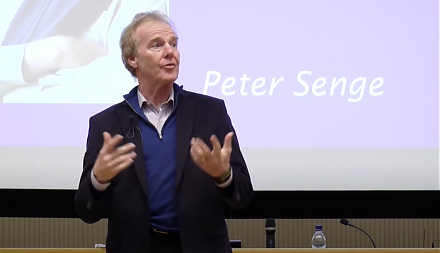

2019-05-03 11:29:00 Fri ET
technology antitrust competition bilateral trade free trade fair trade trade agreement trade surplus trade deficit multilateralism neoliberalism world trade organization regulation public utility current account compliance
Key tech unicorns blitzscale business niches for better scale economies from Uber and Lyft to Pinterest, Slack, and Zoom. LinkedIn cofounder and serial entrepreneur Reid Hoffman explains in his recent book that tech unicorns rapidly scale up core functions to reap network effects despite substantial uncertainty. Network effects often manifest in the form of freemium users (Dropbox, Facebook, and LinkedIn), cloud services (Amazon and Zoom), and online subscriptions (Apple and Netflix). About 2 decades ago, the last IPO boom brought to the stock market a boatload of profitless dotcom companies. Many of these dotcom companies never had the opportunity to blitzscale their core operations with gargantuan losses.
In accordance with the Hoffman zeitgeist of Silicon Valley, the current IPO game focuses on how tech unicorns become big before substantial economic uncertainty strikes hard. Beyond the singularity point, these tech unicorns start to worry about net profits and other socioeconomic bottomline metrics. This competitive strategy works well for tech titans such as Facebook, Amazon, Microsoft, Google, Apple, Nvidia, and Twitter (FAMGANT). Nevertheless, the same strategy may turn out to be less effective for Airbnb, Uber, Lyft, Netflix, Slack, and Zoom as they experience competitive bottlenecks in lieu of both scale economies and network effects.
If any of our AYA Analytica financial health memos (FHM), blog posts, ebooks, newsletters, and notifications etc, or any other form of online content curation, involves potential copyright concerns, please feel free to contact us at service@ayafintech.network so that we can remove relevant content in response to any such request within a reasonable time frame.
2019-08-16 17:37:00 Friday ET

Amazon faces E.U. antitrust scrutiny over the current e-commerce use of merchant data. The European Commission probes into whether Amazon uses key third-par
2018-01-07 09:33:00 Sunday ET

Zuckerberg announces his major changes in Facebook's newsfeed algorithm and user authentication. Facebook now has to change the newsfeed filter to prior
2020-08-05 08:33:00 Wednesday ET

Business leaders often think from a systemic perspective, share bold visions, build great teams, and learn new business models. Peter Senge (2006) &nb
2018-06-14 10:35:00 Thursday ET

The Federal Reserve's current interest rate hike may lead to the next economic recession as credit supply growth ebbs and flows through the business cyc
2018-04-20 10:38:00 Friday ET

Allianz chairman Mohamed El-Erian bolsters a new American economic paradigm in lieu of the Washington consensus. The latter dominates the old school of thou
2018-11-15 12:35:00 Thursday ET

Warren Buffett approves Berkshire Hathaway to implement new meaningful stock repurchases. Buffett sends a positive signal to the stock market with the Berks